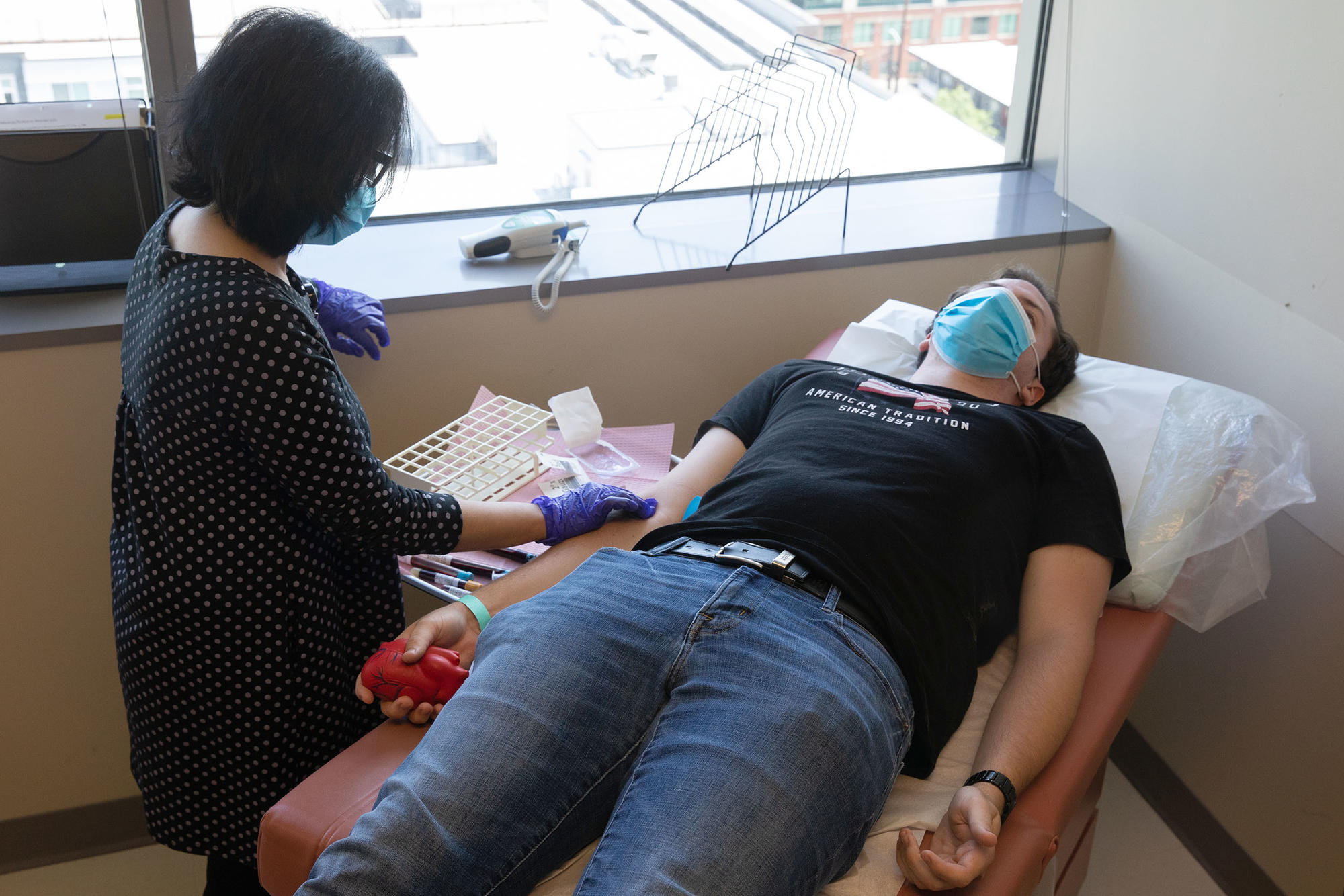COVID vaccine research continues with help of trial participants

Jones, a University of Washington undergraduate, has really gotten to know his veins. He’s lying on an exam table at the University of Washington’s Harborview Medical Center in Seattle on June 10, preparing for yet another blood draw as a participant in a COVID vaccine clinical trial.
Some might wonder why he would want to take something experimental when there’s an abundance of Food and Drug Administration-approved vaccines available. Jones says contributing to science, and possibly improving his immune system beyond what the previously authorized vaccines can accomplish, is worth it. He may have a little buyer’s remorse, but not in a long-term sense.
“It might be more convenient to be vaccinated, but I think the benefits outweigh the negatives,” says Jones, who is studying psychology and business while working part time and serving as a teaching assistant.
Fortunately, Jones has good veins, Dr. Tia Babu tells him. She’s doing the blood draw after taking Jones’s vital signs at his first clinic visit since receiving his first dose of a second-generation coronavirus vaccine, one that researchers hope will provide lasting immunity to the virus and its variants.
For the past few months, Babu and Dr. Anna Wald, the UW principal investigator of the study, have been planning and conducting preliminary clinical trials of biotechnology company Gritstone’s CORAL vaccine. Gritstone’s “second generation” vaccine adds more defenses to the mix. It will — the manufacturer hopes — engage parts of the immune system some existing vaccines don’t reach. Researchers suspect the new vaccine will provide even broader immunity than those that have already received FDA approval and entered the market.
Despite missing out on some summer social activities and having no guaranteed level of immunity, trial participants believe more time under lockdown is worth it to move science forward. The doctors, both infectious disease physicians and faculty at the University of Washington School of Medicine, aim to enroll 40 unvaccinated people in the study. After just a few weeks of actively enrolling people, they have five participants already vaccinated; many others have reached out to sign up.
“It turns out that there are a lot of altruistic people in Seattle and in Washington state, who want to make a contribution,” Wald says.
Subjects at other CORAL trial locations received doses as early as March 30, but Seattle-based participants didn’t receive their vaccines until May at the earliest, when other COVID vaccines authorized for experimental emergency use were already available. With FDA-approved vaccines already available and a host of other vaccine trials long open, those involved in the Seattle CORAL study wondered whether they would find enough unvaccinated volunteers.
“I was just like, ‘Who’s going to do this when you can just go get vaccinated?’” says clinic manager Kirsten Hauge, manager of program operations at the UW Virology Research Clinic. “And I was surprised by how many people we got.”
Deciding to join the trial
Having moved to Seattle with her wife just before the pandemic set in, Nicole Rundlett was looking for a way to meaningfully give back when she heard about the vaccine trial.
A traveling sales manager, Rundlett isn’t used to spending so much time near and at home. She has kept busy by exercising, brewing beer, and filling a quarter of her 800-square-foot porch with potted plants, but she needed a community-oriented outlet. Having heard various conspiracy theories about vaccines, Rundlett — who comes from a family of medical workers, but who had never participated in a research study — thought she could lead by example. “I felt like I needed to do something to contribute,” she says.
*** This article has been archived for your research. The original version from Crosscut can be found here ***


